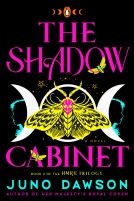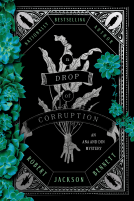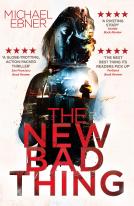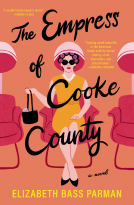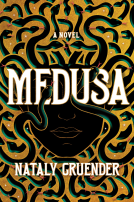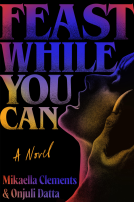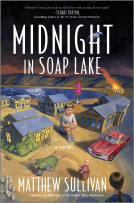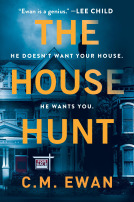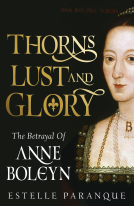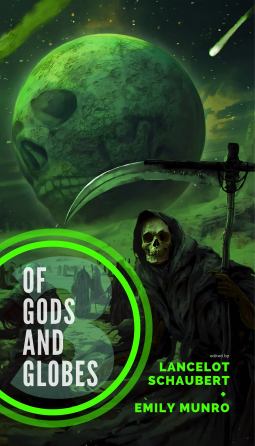
Of Gods and Globes III
Trigger Warnings and The Abyss
by Edited by Lancelot Schaubert
This title was previously available on NetGalley and is now archived.
Send NetGalley books directly to your Kindle or Kindle app
1
To read on a Kindle or Kindle app, please add kindle@netgalley.com as an approved email address to receive files in your Amazon account. Click here for step-by-step instructions.
2
Also find your Kindle email address within your Amazon account, and enter it here.
Pub Date Apr 30 2024 | Archive Date Feb 17 2024
Lancelot Schaubert | Independent Book Publishers Association (IBPA), Members' Titles
Talking about this book? Use #OfGodsandGlobesIII #NetGalley. More hashtag tips!
Description
Ed. Lancelot Schaubert: So this Of Gods and Globes series isn't astrology, or isn't supposed to be, so what the heck are we doing here — enough for a third volume?
Dr. Anthony Cirilla: As with most complicated concepts in history, we have to start with, "What do we mean by astrology?" The etymology of it is difficult to distinguish from astronomy: the study of the stars. And the development of studying the stars, like many branches of science, were tangled up with what we might call magic today. Isidore of Seville introduced the distinction between astronomy and astrology in the seventh century, though their separation wouldn't be completed until the scientific revolution.
But as C.S. Lewis wrote about in the Discarded Image, the relationship between astronomy and astrology was deeply influential on the poetic vision of the universe. In other words, studying how the stars worked was involved in studying the meaning of human life. So if Chaucer tells you that the planet Venus was shining brightly, that meant something more profound than mere symbolic ornamentation. It signalled a connection between the man as microcosm and the macrocosm of creation.
Lancelot: In a way, it's about the influence of the non-physical mind has over matter? Or of larger bodies on smaller bodies and vice versa?
Anthony: Yes, and I think this series of volumes is working in an area of literary symbolism that extends the work C.S. Lewis was attempting in the Space Trilogy, to restore the power of the Discarded Image. Not that we should return to medieval science, but to a medieval recognition that not only does the mind influence matter, but that matter is infused with mind. We talk about Enlightenment, for example, but that mental state has behind it the physical effect light has not only on the eyes but on the mind.
Who hasn't felt better after taking a walk in the sun? That is partly due to things science can explain, but also because the sun rising as metaphor for a soul coming out of darkness into non-physical light (whether emotional, spiritual, or what have you) is in some sense the metaphor, the correct metaphor if I may say so, because it grasps at a real symbolic potential for the mind that the sun actually possesses. We use light to discuss the mind's brightening because light actually does brighten the psyche, and so partakes actually in the process it represents symbolically. The celestial bodies are not the only part of our physical environment that have this potential, but again, that they are perceptually above us matters for their symbolic reality for our condition. They lift up our eyes, and so they lift up our minds, too.
Lancelot: Do you think the tidal realities of the planets have actual influence on our planet, though the pseudoscience of modern astrology gets this wrong?
Anthony: I suspect you are more qualified to answer this question than I am, but given that we know that the moon holds sway over the ocean tides, and the almost universal testimony of the effect of a full moon on people, it seems plausible that there are planetary effects that are more mysterious than we have discovered. It’s possible that a bias towards our seeming superstitious or appearing to descend to horoscope folly has caused the scientific community to leave such questions less explored than they should be.
After all, our words "influence" and "lunacy," not to mention the names of the days of our week, remind us that this belief has a strange staying power. Science has a very different view of energy than when astrology was rejected, so maybe it is possible to study our relationship to the cosmos in a way that avoids the pseudoscience but answers our lingering questions, like the impact of the moon on hospitals. What I don't know about such things could and does fill many books. But even Disney continues to invite us to wish upon a star. What there is to it scientifically I don't know, but anthropologically there's something profound at work in any case. Maybe we need a branch of psychology devoted to the symphony of the spheres? Do you have thoughts you'd like to add on that subject?
Lancelot: Well if black holes warp time, as illustrated in films like Interstellar, and if our planet is delicately balanced between the orbits of multiple comets, the planets, and the sun, then it seems to me that it might have an effect on a place like Turnagin Arm -- whose tidal realities combine a strong east wind with the moon's influence upon a perfectly shaped series of mudflats: the water matches the resonant frequency of that mudflat inlet, drawing still more water out, ending with forty foot tides. If that's what mountains and moons and winds can do, what of Saturn? What of Jupiter? It's said that Titan could host life from tidal realities alone.
Yes. I think it's woefully unexplored because of the social pressure associated with astrology. The theories of Milankovitch cycles point to apsidal precession as a place where planets like Saturn and Jupiter can irregularly shift the orbital ellipse of the Earth, completing a full cycle every 112,000 years. That means about 66,000 years from now, the eclipse of our current orbit will be facing the opposite direction, the entire thing over the course of time spinning like an egg. That’s what planets do to our orbit. And that can even effect our climate, which of course effects our diet and disease and interactions, etc. That in mind… How might stars share spirits with angels, demons, and fae?
Anthony: As before, my thoughts on this subject begin with my background in the Middle Ages. The geocentric cosmology of Ptolemy was seen by medievals as mapping on to the heavenly structure of angels, which all formed a ladder of the great chain of being pointing to God as the only fully realized being whose existence was pure actuality — no potential, because only creatures have potential. The cosmos was filled with God's glory. Medievals called this the principle of plenitude – in his infinite nature.
Lancelot: Mindful of all this, what borders do you believe science fiction and fantasy share?
Anthony: I think science fiction and fantasy are to some extent a spectrum, with "purer" versions of both, but they enhance each other. Fantasy allows us to ask, What if the world were fundamentally different than how we know it to be? What would remain? Fantasy does not imagine the invention of dragons but asks us to see who we would be if we had to fight dragons. Then it reminds us that we do fight them already and so have to rise to the heroic image we saw in the dragonslayer. Science fiction deals with how a scientist might create a creature that we could call a dragon, and in so doing invites us to consider how technology and scientific innovation is already a dragon we must tame if we are to incorporate it into life in a healthy manner.
One emphasizes externalizing the symbolic power of the mind; the other emphasizes the need for the symbolic power of the mind to wrestle with how our scientific innovations impact the poetic structure of our existence. Like the ancients, we are looking to the sky, but we are closer to the heavens physically than they could have imagined. But we are also further from the heavens than the rich philosophical tradition which makes its way into medieval poetry. I believe that literature is at least in part a way a society digests social change for mental health, and we need to think through stories about how our ever growing access to outer space changes our intuitive symbolic response to life. Fantasy and science fiction are, maybe, something like taking in and pushing out a deep, steadying breath to help us undertake that process.
Lancelot: Fantasy and science fiction as mindfulness for a space faring civilization. I like that a lot.
Anthony: After three volumes, what do you think the Of Gods and Globes anthologies have achieved? How have your hopes been met and what surprises has the process had for you? What have you learned?
Lancelot: As with all of my projects, I tend to take the idea very seriously and myself as the joke. If the anthology’s the set-up, my clownish existence is the punchline. If I — as a person — am comedic relief, the project itself is the tragic catharsis. So I always try to get collaborators stick to the form, the logic, of the vision. And then I satirize myself in the process: after all, I'm a nobody and probably deserve to do things like this anthology the least of anyone participating, the least of any other anthologizers. Anthologists? Editorial anthropoids? Originally, I wanted to riff on the Discarded Image ideas in a way that illuminated the longlævi. I pitched that to four philosophers, and you were the only one that took me up on it, Anthony.
The funny thing is that pretty well renowned authors in the science fiction and fantasy field took up the vision and ran with it. So there in the first volume, here I am with my 1980s style cheeseball back cover featuring the brilliant Juliet Marillier's headshot and her wonderful rescue dogs as well as as well as the faces of many other significant voices. Again: I took the vision and the world and the contributors so very seriously, but not so for myself. Only recently have I realized that there are instances in which the court jester only services the King and, as a result, makes the rest of the high court look foolish. So I’ve invested in a few more pairs of dress pants and high thread count shirts for the likes of Juliet and others. (i.e. — I invested in a cover this time around that was better than our last guy, which is to say better than me and some Creative Commons images). So I think right off the jump, more or less we achieved our goals with the first. It helps to have small achievable goals nested with inside a larger goal, and even my own stories in the volumes lie nested inside my larger, long-term goals. (Unlike other editors, since this was a very vision-forward anthology, I decided to practice what I preach and try my own hand at it, putting my story at the back of each volume under the assumption that I’m the lowest and least fictioneer in every book).
Personally, I think I learned that I'm not a very good editor or curator. I'm a pretty good producer because of my capacity to network and because of my experience in several different creative fields (music, film, photonovels, design, performance arts, art galleries, etc.). I'm really better at creating a vision, letting other people run with it, and contributing my own creative work. I’m pretty terrible as an editor, to be perfectly honest. Without Emily, I doubt I would have even pulled the trigger on a third. She kept me in line, straight and narrow.
And, frankly, listing on Duotrope and Submission Grinder was… well it wasn’t exactly a mistake, per se, because we accepted some amazing stories from those sources. But we were also inundated with submissions and I don’t have the team nor the time that Neil Clarke has. But hey, we survived — better late than never. As far as the project goes, I think I learned that this is a near infinite theme (though I will ban Greco Roman deities if there are any future volumes) because it deals with consciousness. It deals with cosmic phenomena. And it also deals with the spiritual forces of the cosmos (whether one universe or an infinite number, I here refer to the physical actuality contingent on spiritual actuality and spiritual possibility).
I mean, we probably received three submissions on Venus alone this time around and have already published two on her. And all three new submissions are all different and they’re all different from the past two stories, even though it's the same demiurge, same planet. But as regarding other fields, I think it shows the ripe field for science, ripe field for philosophical inquiry, as well as literary symbolism and poetry. I think if anything, if we could rescue this idea from modern astrologers and horoscopes in the grocery aisle, we would have come a long, long way in advancing the human heart and thought deeper into cosmological phenomenon. And isn't moving further up and further into the great mystery of being what this is all about?
I’m certainly surprised at the submissions, we have received: some of them make me weep, some make me laugh uncontrollably, most of all they humble me. Last question: whether science, fiction or fantasy, we're talking about the music of the spheres: where does that come from? And what does it mean?
Anthony: The music of the spheres is an old idea, older than Christianity, older than Platonism. It goes right back to Pythagoras, though I imagine even he was not the first to formulate the initial thought. Essentially the music of the spheres is a consideration of what music fundamentally is and what it means for the nature of the cosmos. Music is a manifestation of order from the potential chaos of sound. Why can music be made in this universe? Why can random objects be shaped a certain way, and indeed why are our voices shaped, to produce this cocktail of audio vibrations that seem capable of working magic on us? Ancients and medievals broke music into three categories: the music of the spheres, the music of virtuous living, and the instrumental music (including singing) that we normally think of with the word.
As they understood it, the joining of spiritual and physical capacity in producing music was what you could call a sacramental manifestation of the human desire to experience order with the cosmos. If one were the sort of being that could step outside of the universe and hear the sounds of the planets spinning, the stars burning, the asteroids crashing, the rivers running, the wind in the trees — if one could hear all of it, what would it sound like? Would it sound chaotic and random? But classical theism, including but not only in Christianity (it was also found in Socratic and Platonic thought, Vedantic Hinduism, Judaism, Islam, and so forth), believed that God — the grounds of all Being — was a God of order, not of chaos, and that a God of order would produce a universe which had, at a maximal vantage point, a sound of harmony. In essence, a music of the spheres. Chaotic sounds would be akin to hearing snatches of a symphony from another room and thinking it was badly composed because we weren't able to hear the whole thing.
The symphony of the spheres was a richly intuitive answer to the problem of evil, but also a richly powerful notion for the problem of human vice. Musical training requires that you discipline your time, your body, your attention — it participates in virtues necessary for a good life, which is why it's considered either the final or second to final liberal art — in competition, of course, with astronomy. Because music is number studied through time and astronomy is number studied through time and space. This means that when you learn music, you are practicing virtue, but you are also learning how to manifest the same principle of bringing harmony out of chaos. It is a way of experiencing the Imago Dei. But it is also a humbling process because the master musician is submitted to his craft, and we learn to be audiences of the symphony of the spheres through the order the liberal arts help us perceive. And like the musician, the storyteller celebrates a related power to music: the word.
Choosing just the right word, just the right story, to catch a gleam from the celestial light of imagination, puts us each time just a little more in touch with the harmony that is love of God, love of neighbor, and love of the cosmos which is the stage for the drama and the symphony of light's ultimate victory over darkness. Thank you for the opportunity to have this discussion, Lance. It was fun.
Lancelot: Oh I NEED it, otherwise you’re stuck with the universe’s court jester to ramble on with lame jokes about why we need these stories, so thank you. Helps to have something like this rather than my cap and bells when all music goes silent.
But if that music goes silent in a world of nonentity and decaying art, my cap and bells will be heard.
Even in the abyss, even long after my death, you’ll hear that little tintinnabulation of my jester’s cap.
Advance Praise
PRAISE FOR THE AUTHORS —
"Bell Hammers by Lancelot Schaubert is a hoot."
— Publisher's Weekly
"Proper fantasy, balanced between epic and personal; this promises to be an engrossing series, with intimations of bigger things ahead."
— Kirkus on Juliet Marillier's SHADOWFELL
"Gollitok by Andrew Najberg is a harrowing and brilliantly crafted journey into post-nuclear Eastern Europe, where the scars of the past give rise to an atmospheric and spine-tingling tale." — Horror Review
Marketing Plan
We've already started touring the convention circuit and plan to take copies to Glasgow Worldcon. Submissions to contests and awards have begun.
We've already started touring the convention circuit and plan to take copies to Glasgow Worldcon. Submissions to contests and awards have begun.
Available Editions
| EDITION | Paperback |
| ISBN | 9781949547146 |
| PRICE | $19.99 (USD) |
| PAGES | 540 |
Available on NetGalley
Featured Reviews
Really enjoyed the book from start to finish. Author wrote this with great pace. Of gods and globes III is now one of my top books of the year for sure. Loved every second of this book.
 Keith M, Reviewer
Keith M, Reviewer
I honestly had to idea what to expect from this book having missed the others, but I must admit I was pleasantly surprised by what I ended up reading, I won’t go into detail because I hate when people do that but I will say that the book is worth reading, so much so that I’ll be getting the first two in the series.
Note: I received a free unpublished proof of this book, for a limited time, in exchange for an honest review. All opinions here are my own.
First off, I haven’t read the first two books in this series, but it’s an anthology, so presumably there is no connection between the stories in this anthology and those in the first two books.
Second of all, I have no clue why the subtitle is “Trigger Warnings and The Abyss”, particularly as there is nothing in any of these stories that is about trigger warnings. I would say that *overall*, it’s an 18+ book, because it’s aimed at adults and there is some sexual content, but nothing extreme. While we’re at it, there is some content that could warrant a minor trigger warning, so here goes: Some of the stories in this book contain portrayals of death, injury, illness, sex, racism, and spiders.
There’s not much about the abyss either, but that’s at least up for debate.
The main idea of this anthology is that each story contains two themes: gods and planets. There is supposed to be an idea of “planetary influence” in each story as well. I.e., characters’ actions and emotions, and events in the stories, are influenced by the planets. Some stories adhere to this closely, whereas others are a bit further away. Since the quality (and relevance) of the submissions varies a lot from story to story, that’s how I’m looking at this review.
“Twins” by Juliet Marillier—Has a god and an astrological body (Zeus and the moon, respectively) in the most literal sense. Also a retelling of an existing myth, but original enough to capture the imagination.
“Death In Venus” by Chris Edwards—Venus (the planet) is implied to be connected to Venus (the goddess). Really short, probably the shortest in the book. Not particularly compelling but fits the “theme” so it is a good addition to the anthology.
“Searching for the Door into Death” by Michaele Jordan—Includes a figure implied to be a god of death. The literal *planet* is questionable, other than that it takes place on Earth, but since love is such a strong theme here I think the author was going for the “planetary influence” theme of Venus representing love. Enjoyed this one overall; very heartfelt.
“The Mistress of the Labyrinth” by Donna J. W. Munro—I’m about 90% sure that this is the one with the ice labyrinth on Jupiter. Planet = Jupiter, god/mythological figure = the Minotaur. Inventive, leaves you with a bit of mystery at the end, really liked this one overall.
“We Have No Spare Parts” by Andrew Najberg—One of my favorites in the book. The “ship of Theseus” problem, in space. I don’t remember what planet they are going to but there are multiple mythological references.
“War on Brihaspati Graha” by Shashi Kadapa—Good story. The mythology was clear—it was about a battle between gods and demons in Hindu mythology. However, I’m not clear as to what the planet/planetary influence was supposed to be. I realize that India has its own astrological tradition, though, so I think this one probably just flew over my head.
“A Cup of Justice” by Teel James Glenn—Interesting story about Dionysus with some transformation fiction aspects. Again, not quite sure about the planets thing, unless we are looking at the “god coming to Earth” aspect. If we are talking about planetary influence, given the themes of the story…Mars, maybe? Or Saturn? There’s a lot going on. It is very much “pulp fiction” though, and I’m not a fan of the writing, particularly the thing the author does (that I’ve seen before) where the protagonist makes casually racist comments thrown in there for laughs. I don’t think this is a case of the author having these views himself (e.g. *Nothing Lasts Forever* by Roderick Thorpe), I just think it’s insensitive to frame them as “funny”.
“Alfa Romeo” by Victory Witherkeigh—Deities from the Pacific Islands (I think Hawai’ian, but I’m not 100% sure since I’m not knowledgeable on that tradition) in a catastrophic love story. I’m not sure if this one is based on an actual myth or not. Planetary influence…not entirely sure. There is love involved, but I don’t think it’s supposed to be about Venus. If we are looking at Western astrology, then maybe the Sun, Moon, or Mars.
“Unchained” by Helen Venn—Retelling of the marriage of Perseus and Andromeda, well-written. I’m not sure what the planetary bit was supposed to be, though. It seems to just be a straightforward retelling.
“Mazzaroth Falls” by F. C. Shultz—Space opera about the aftermath of a political figure on a fictitious planet declaring himself to be a god. Definitely original; liked this one a lot.
“Ignition” by Dan Hendrickson—I believe this is the one about Kronos’ children. Interesting, though would probably be more interesting if I remembered more about that part of Greek mythology.
“Across Saturn Rose” by Anthony G. Cirilla—I believe this is the one about the music of the spheres. Very interesting idea, with a touch of humor.
“All Bright Things” by Evangeline Giaconia—Space ballet! I liked this one a lot. The deity is Athena, the planet is Jupiter. Short but sweet, kind of sad but overall a nice story.
“Charon” by Chuck Boeheim—One of the best in the book. Involves caves, Pluto, an asteroid, and things with eight legs. Worthy of a sad space song.
“The Perseid” by Benjamin Chandler—About the daughter of Perseus, on an island in the Underworld. Not certain about the planets here.
“The Legend of Johnny Comet” by Benjamin Brinks—Finally, a story with Norse myth in it. Darkly humorous tale about Hermod and the asteroid with the same name.
“Winding Ways” by Emily Munro—Unfortunately, I have completely forgotten this one. My brain has deleted something from this book. There is a chance that my e-reading app somehow skipped this by accident. I want to say this is another one that has to do with the Labyrinth.
“Retrograde” by Artemis Crow—It made a lot more sense when I found out, in the “About the Authors” section, that it was connected to the author’s existing urban fantasy series. I suspected something like that was the case, since there was little to no explanation of what sounded like it would require some more worldbuilding. I think that this should have been established up-front. I liked the overall idea but felt there was a lot crammed into one story—two groups of characters built around zodiac signs, demonic possession, lions and tigers in an “otherworld” that looks vaguely like the Appalachian Mountains, Norse wolves…I think there is a way you could make a story out of all that in a longer series, but I don’t think this one story sho
'We Have No Spare Parts' by Andrew Najberg
Part of the Of Gods and Globes 3 edited by Lancelot Schaubert and Emily Munro releases April 30th 2024. This is an anthology of short cosmic influenced sci-fi and fantasy stories that explore the meaning of life.
Three-Time Contributor Dr. Anthony Cirilla: "studying how the stars worked was involved in studying the meaning of human life." Andrew Najberg thanks so much for suggesting I review this, I cannot tell you how much I loved this book. Between this and Gollitok I think I just became your biggest fan. The story has definite Borg undertones that I cannot get enough of. I NEED this to be a full length novel. The writing is sci-fi heavy but also intensely creative and understandable. I was instantly wrapped up in the delicious tension and anxiety that Sasha was experiencing. I need a hardback full novel with Doctor Lorenze, in all her glorious horror, on the cover immediately thank you (snap snap). This was an utterly fantastic short. Not only am I now going to have to read all of these but I'll be buying the first two anthologies too.
"they’re expecting humans, and I don’t know what we are anymore.”
"Doctor Lorenze regards me as I enter. Of course, Lorenze is no longer what I would traditionally call human either as her primary material interface is a mobile array on a tether within which her optic nerves are embedded...Doctor Lorenze’s brain is still intact and operational, suspended in electrolytic fluid in a circuit vault within the medbay’s central processing assembly."
I am blown away by the many stories in this book. I had no idea I would enjoy them all as much I did.
Thank you #NetGalley #ofgodsandglobes
I ended up reading the third entry of the 'Of Gods and Globes' anthology when Andrew Najberg mentioned he had a story in it. It turned out that, on top of his amazing story, there are a lot of good stories contained in this tome! “Trigger Warnings and The Abyss” was a rather bizarre subtitle, but, that said, even the theme of the anthology (astrological influences, taken in a wide sense) is a bit strange as a theme for science fiction stories, There's an introduction where some details are given and some things are explained about the choice of theme, but otherwise it really doesn't matter all that much whether you go for the literal or a metaphorical interpretation. I myself enjoyed the stories either way. The length varies; the point of each story varies widely; the quality also varies; but overall, a couple of stories excepted, I was consistently entertained and intrigued by most of the tales. In particular, I'd recommend “We Have No Spare Parts” by Andrew Najberg, a very smart story, “The Mistress of the Labyrinth” by Donna J. W. Munro, very mysterious and inventive, “Mazzaroth Falls” by F. C. Shultz, a space operatic, religion-themed story with a large-scale perspective, and “Charon” by Chuck Boeheim, combining horror and science fiction in a terrific and memorable way!
 Susan M, Reviewer
Susan M, Reviewer
Do you know what a trigger warning is? It is a statement at the start of a piece of writing, video, etc., alerting the reader or viewer to the fact that it contains potentially distressing material. (from Oxford Languages). The abyss is a deep or seemingly bottomless chasm. So why is this anthology has the “subtitle” “Trigger warnings and the abyss?” There is a dedication in Latin “memento mori, frater, which literally translates to “you must remember to die” or loosely as “remember death.” There are many stories that may have a theme of hurt and loss. Yet it also connects with astronomy rather than astrology. It’s not what I thought it would be. It is written so cleverly you may not see how astronomy is part of the story. I did become aware of it. Does the planets affect humans or not? It’s has an excellent collection of short stories when you are reading these stories I hope you will think if they relate to the subtitle or not. . The stories included in this anthology that are very good. I enjoyed reading this anthology. It contains notes that gives the reader information about the individual authors.
When I stumbled upon "Of Gods and Globes III," it was purely by chance. Intrigued by the mention of Andrew Najberg's contribution, I decided to give this anthology a shot. Little did I know, I was about to embark on a journey filled with captivating tales that would leave a lasting impression.
The subtitle, "Trigger Warnings and The Abyss," may seem peculiar at first glance, but within the pages of this anthology, it serves as a gateway to a realm where astrological influences intertwine with science fiction in unexpected ways. While the theme itself may appear unconventional, it proves to be a fertile ground for a diverse array of stories that defy expectations.
Schaubert provides an introduction that sheds light on the chosen theme, but as I delved into the stories, I found that whether taken literally or metaphorically, it mattered little. Each tale stood on its own merits, offering unique perspectives and imaginative narratives that kept me engrossed from start to finish.
The length and style of the stories vary greatly, ensuring a dynamic reading experience. While the quality may fluctuate, the majority of the tales succeeded in entertaining and intriguing me. Among the standout stories, "We Have No Spare Parts" by Andrew Najberg stands out as a brilliant and thought-provoking piece. Donna J. W. Munro's "The Mistress of the Labyrinth" captivated me with its mystery and inventiveness, while F. C. Shultz's "Mazzaroth Falls" offered a grand space opera infused with religious themes. Lastly, Chuck Boeheim's "Charon" masterfully combines elements of horror and science fiction, leaving a lasting impression with its memorable narrative.
As someone who approached this anthology with no preconceived notions, I was pleasantly surprised by the depth and variety of the stories within. While I won't delve into specifics to avoid spoilers, I will say that "Of Gods and Globes III" is a worthy addition to any science fiction enthusiast's library. So much so, that I now find myself eager to explore the first two entries in the series.
In conclusion, "Of Gods and Globes III" offers a captivating blend of imaginative storytelling and thematic exploration. With its diverse collection of tales, it proves to be a delightful read that challenges perceptions and leaves a lasting impression on its readers.
Short stories anthologies are not normally my preferred reading. Though I have always admired the author’s skill to produce a whole story in just a few words. Having been given the chance to look at this book I found I kept coming back to it. I would read one or two of the stories, then a week or a few weeks later some more. The stories are varied and interesting. Some about gods, others about finding some sort of fulfilment in one’s life. Overall worthwhile reading. Thank you to Lancelot Schaubert and NetGalley for the ARC. The views expressed are all mine, freely given.
 Angie L, Reviewer
Angie L, Reviewer
This wild ride of an anthology is super fun to read. The characters are bold, rich, real, flawed, interesting, funny, and aloof. The topics are so wide ranging that you never really get bored of them. Until next time Happy Reading!
I want to thank Lancelot Schaubert for this ARC via Netgalley.
 Maria Grazia B, Book Trade Professional
Maria Grazia B, Book Trade Professional
The volume suffers somewhat from the typical problem of all short story anthologies, namely a series of ups and downs. Even more so because this is a collection of several authors, united by a theme. Having said that, some of the short stories are of a sublime level, I refer for instance to Death in Venus, The Mistress of the Labyrinth, We have no spare parts, War on Brihaspati Graha, Alfa Romeo. Others have a beautiful basic idea, but are concluded with a little too much haste, leaving the reader a little disappointed. That said, the idea of organising an anthology around myth, using that part of fantasy closest to science fiction, is truly remarkable.
